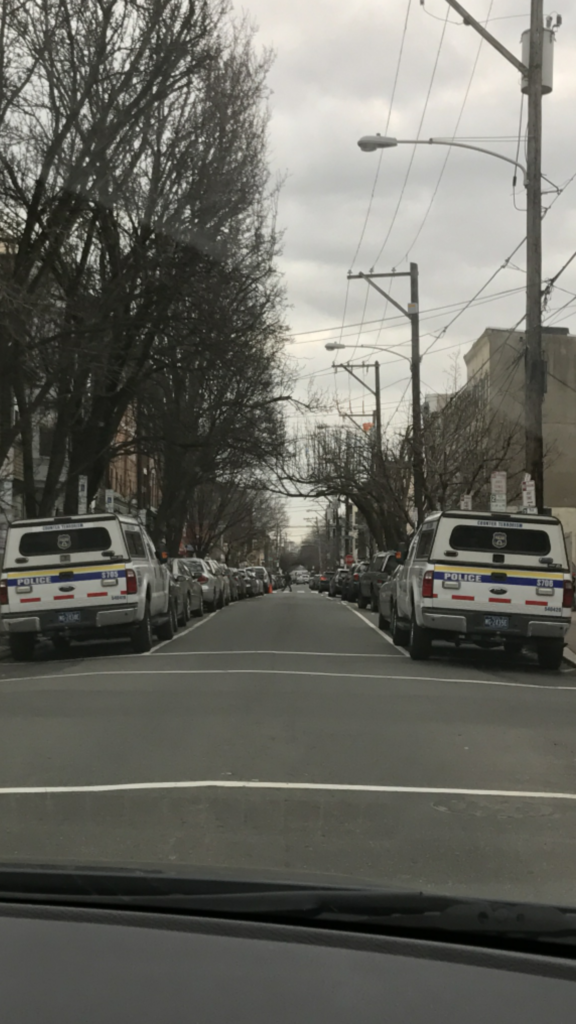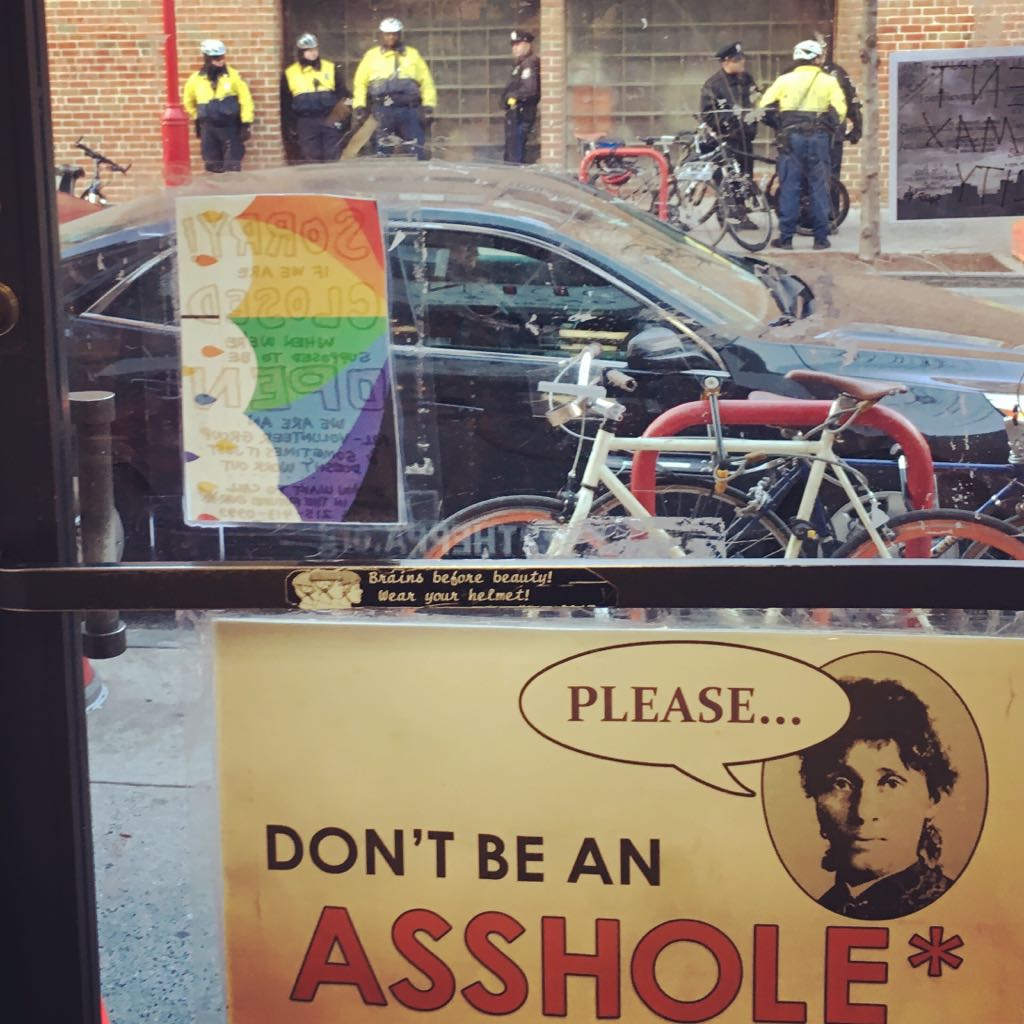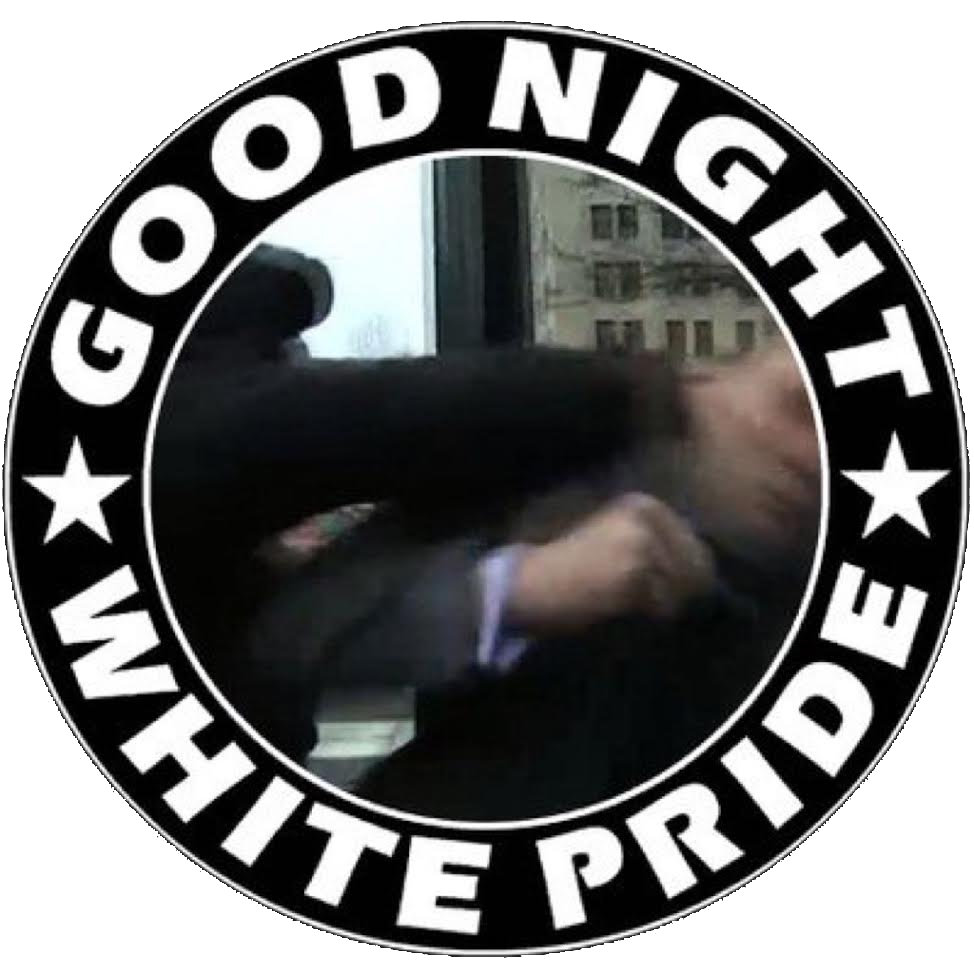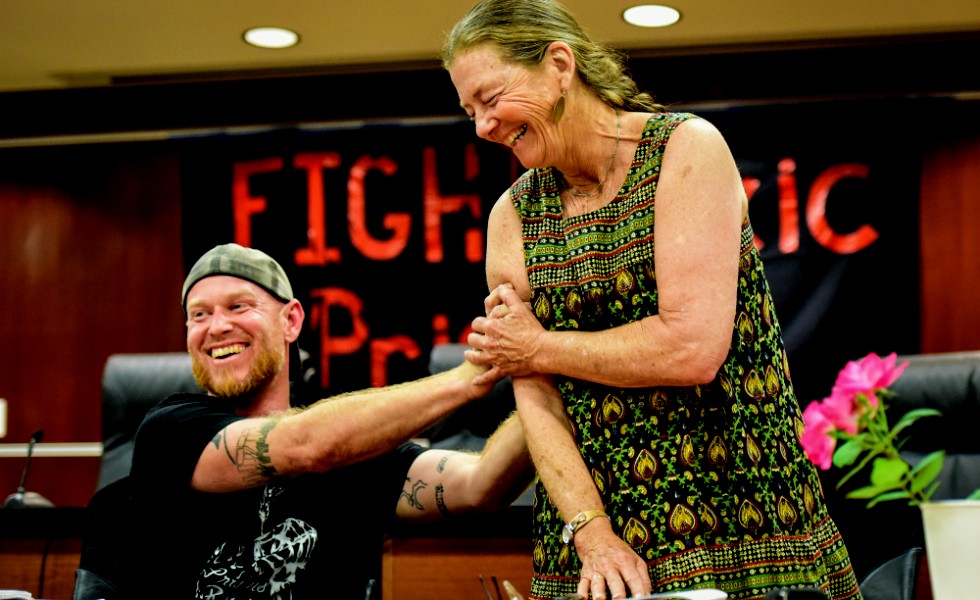from Up Against The Law
Bundle Up With Solidarity and Resist The Chill
A Statement From Up Against The Law Legal Collective
On Saturday January 28th Philly Antifa held an event at Wooden Shoe Books featuring anti-fascist researcher Matt Lyons of the blog threewayfight. Some people arriving at the event noticed an unusually large police presence outside and across the street, others noticed a car parked out front that contained plain clothes officers from Civil Affairs, Philly’s protest police. Text messages bounced around to different people expressing concern. Were the cops going to try and come in and mess with people? Were they targeting Philly Antifa? What exactly was happening? Why were the Philadelphia Police staked out in front of public speaking event at a bookstore?
 After the event some disturbing details were relayed by Wooden Shoe staffers to Philly Antifa organizers. Plain clothes officers from Civil Affairs had visited the Wooden Shoe the day before to voice concern about the Philly Antifa event. They alleged that Philly Anitfa may have been involved in a protest at which vandalism occurred, misidentified Philly Antifa as a fascist group themselves and speculated that right wing violence might occur at the event. They asked the staffers at the Wooden Shoe if they would consider canceling the event.
After the event some disturbing details were relayed by Wooden Shoe staffers to Philly Antifa organizers. Plain clothes officers from Civil Affairs had visited the Wooden Shoe the day before to voice concern about the Philly Antifa event. They alleged that Philly Anitfa may have been involved in a protest at which vandalism occurred, misidentified Philly Antifa as a fascist group themselves and speculated that right wing violence might occur at the event. They asked the staffers at the Wooden Shoe if they would consider canceling the event.
That the PPD thinks its acceptable to try to get anti-fascist public speaking event cancelled should be of concern to everybody in this city.
That the PPD thinks its acceptable to try to get anti-fascist public speaking event cancelled should be of concern to everybody in this city. For their officers to think they can enter a bookstore and suggest, imply or request that a speaking event should be cancelled is reprehensible.
What should be equally concerning is the ‘divide and conquer’ technique at play. We saw this tactic at play at Occupy Philadelphia in 2011 when the Civil Affairs warned Occupiers new to political movements to ‘watch out of the anarchists and black hate groups like Uhuru’. We saw it at play back in 2000 when civil affairs warned anti-stadium organizers in Chinatown that they had to watch out for the anarchists without knowing that the organizers trusted those same West Philly anarchists and that they were involved in providing security and marshaling for their march the next day. We’ve seen Civil Affairs deploy this tactic time and time again. The PPD has a history of trying to wedge movements and to cultivate suspicion among organizers and groups who may not know each other well or who they suspect may have some initial distrust toward each other.
We can resist by dragging this tactic into the light and letting other people know about it especially those new to organizing. When we let people know in advance that the PPD might spread misinformation about other groups it prepares them psychologically to resist this tactic and to dialogue with each other when the PPD attempts to play the divide and conquer game. It should go without saying that you should exercise your right to remain silent and refuse to answer the cops questions about others in the movements. However, If the cops approach you to speak about an organizer or organization you should absolutely contact that organizer or organization right away to talk about what happened and let them know the cops were asking about them and/or making claims about them. Exercise your right to dialogue with others in the movements and build with them.
That this is a seemingly clumsy use of this tactic should be no less concerning. It’s probable that the Civil Affairs knew their intervention would be rebuffed but knew that through speaking to Wooden Shoe staffers their primary message would be relayed to rebellious movements: we are watching you. This was especially clear the next day with the large police presence outside and around South Street. Cultivating paranoia is an important weapon in the cops arsenal.
While the Matt Lyons event was standing room only the police harassment and presence outside had a chilling effect. Some people received texts from friends warning people to stay away from the Wooden Shoe. In the future we would recommend the opposite. If you hear that a group is being harassed by police go down to stand by them and support them if it as at all possible for you to do so.
In 2014 we wrote this in response about police surveillance and harassment of Black Lives Matter activists at their homes and on their campuses:
“We would argue that surveillance’s primary function is for its targets to know they are being watched. It is used to instill fear; to get people feeling as if they are always being watched, monitored and scrutinized and that, implicitly, the police, like any other predator, might pounce on those they are watching. It is a powerful psychological weapon and one reason is that it’s viral. Once one person gets visited or gets a phone call or is followed home, other organizers are looking over their shoulder. Its goal is to make people feel isolated and targeted….
…Our response should be to resist this psychological war with our solidarity. The movement in Philadelphia will never let individuals be targeted and face the authorities alone. To borrow a phrase: our solidarity is our weapon. We should talk openly more about how we will support each other than how the cops may or may not be watching us or ways to evade their gaze.
They will be watching. But so will we. We, as a movement, will be watching to see if they try to start any shit with anybody and we will have each others’ backs. We, in the big picture are a powerful network that can mobilize people on the streets, support people in the courts and move ‘unlikely allies’ to our side. We, as a movement, will never let people face the authorities alone.
Our best defense is to build meaningful relationships with each other across organizations and sectors of the movement. Trust, clear lines of communication and relationship building are the inoculation to the viral fear and intimidation that surveillance tries to instill.”
This statement is more important than ever. Now is the time to have each others backs, build meaningful relationships across the movements and resist paranoia with public solidarity. Now is the time to draw a hard line and let the authorities know exactly what we will not tolerate and what we will not allow them to do to others in the movements. As the old anti-fascist slogan goes ‘No Pasaran’. They shall not pass. We will not let them harass or menace anybody in the movement unchallenged. We will be there for each other.
See Also:
Philly Antifa’s Statement: https://phillyantifa.org/repression-on-south/














